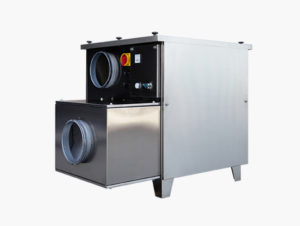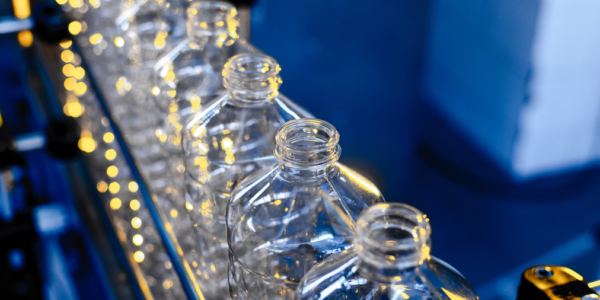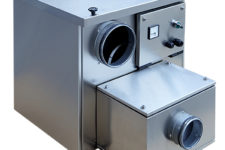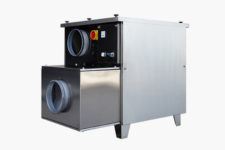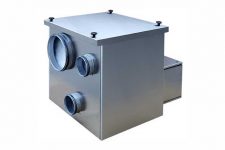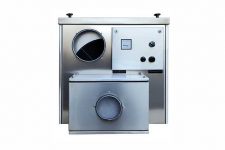DFRD series 
Desiccant air dehumidifiers
The compact solution
The desiccant air dehumidifiers of our DFRD range are the perfect solution for very demanding air drying conditions. They are equipped with double fans, because in these conditions it is not possible to mix the process air with the ambient air with high humidity content or wet air. In this way, the process and reactivation airflows are separated by these separate fans.
The compact series of DFRD desiccant air dehumidifiers are designed in stainless steel and ready for operation. They are also designed to reach very low dew points which makes them particularly suitable for installation and use in certain industries such as plastic forming, in the preservation of certain products such as seeds or in places such as libraries or museums.


